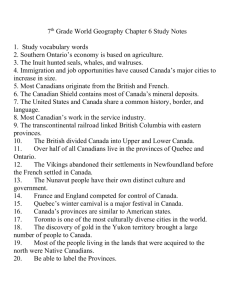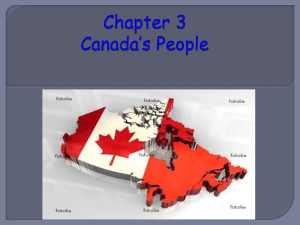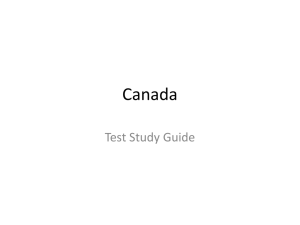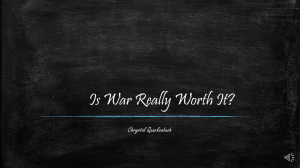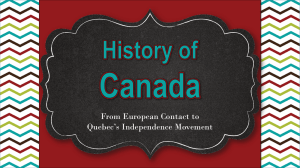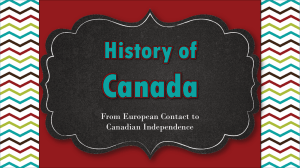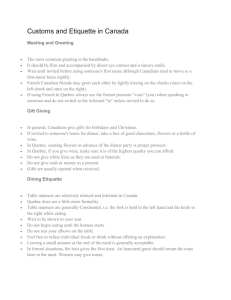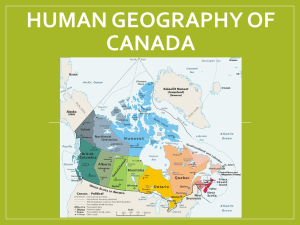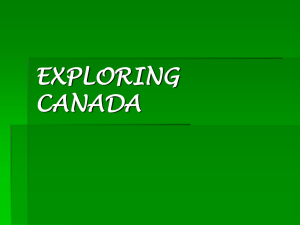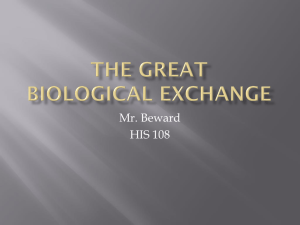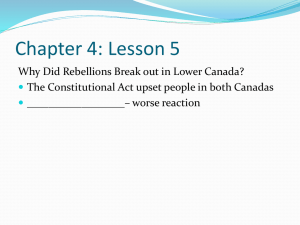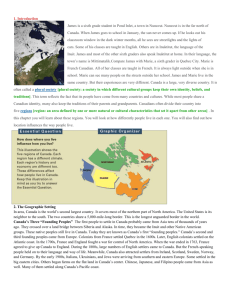Canada - NaukaBezGranic
advertisement
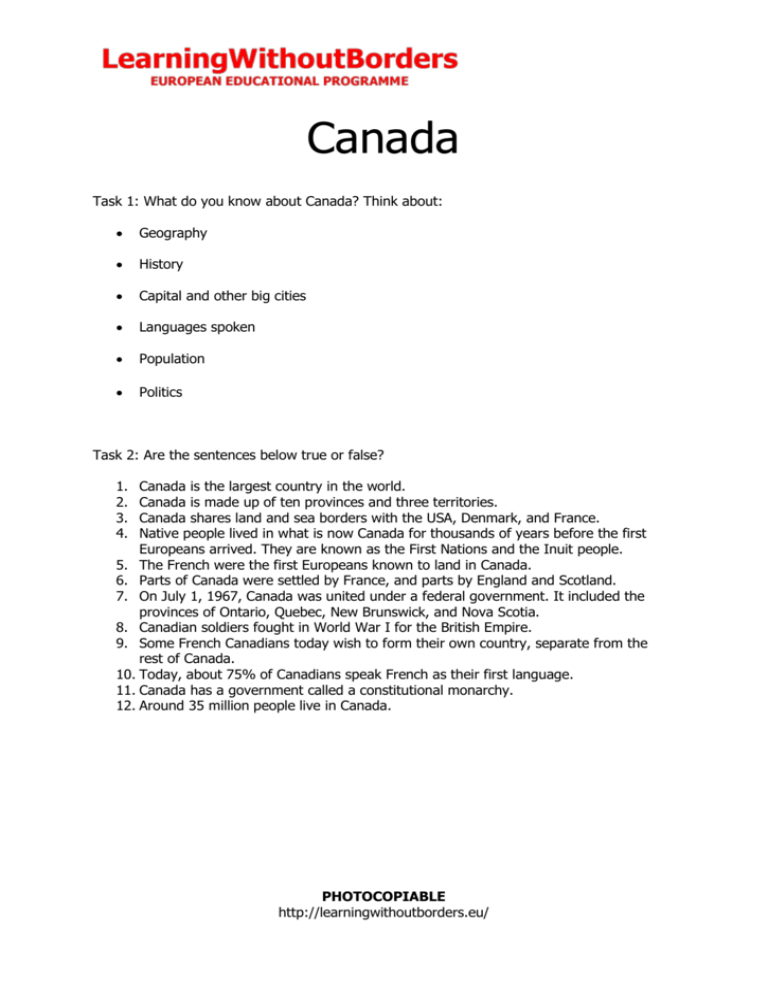
Canada Task 1: What do you know about Canada? Think about: Geography History Capital and other big cities Languages spoken Population Politics Task 2: Are the sentences below true or false? 1. 2. 3. 4. Canada is the largest country in the world. Canada is made up of ten provinces and three territories. Canada shares land and sea borders with the USA, Denmark, and France. Native people lived in what is now Canada for thousands of years before the first Europeans arrived. They are known as the First Nations and the Inuit people. 5. The French were the first Europeans known to land in Canada. 6. Parts of Canada were settled by France, and parts by England and Scotland. 7. On July 1, 1967, Canada was united under a federal government. It included the provinces of Ontario, Quebec, New Brunswick, and Nova Scotia. 8. Canadian soldiers fought in World War I for the British Empire. 9. Some French Canadians today wish to form their own country, separate from the rest of Canada. 10. Today, about 75% of Canadians speak French as their first language. 11. Canada has a government called a constitutional monarchy. 12. Around 35 million people live in Canada. PHOTOCOPIABLE http://learningwithoutborders.eu/ Canada NOTES FOR TEACHERS You may ask students to work on Task 1 in class and do Task 2 for homework. Here are the answers to Task 2 questions: 1. Canada is the largest country in the world. False. Canada is the second largest country in the world in land area, after Russia. 2. Canada is made up of ten provinces and three territories. True. 3. Canada shares land and sea borders with the USA, Denmark, and France. True. Canada shares land and sea borders with the USA (the lower 48 states and Alaska), Denmark (Greenland), and France (St. Pierre and Miquelon — a small group of islands off the southern coast off the island of Newfoundland). 4. Native people lived in what is now Canada for thousands of years before the first Europeans arrived. They are known as the First Nations and the Inuit people. True. 5. The French were the first Europeans known to land in Canada. False. The Vikings were the first Europeans known to land in Canada, in what is now Newfoundland, led by the Viking explorer Leif Erikson. 6. Parts of Canada were settled by France, and parts by England and Scotland. True. 7. On July 1, 1967, Canada was united under a federal government. It included the provinces of Ontario, Quebec, New Brunswick, and Nova Scotia. Fals. It was on On July 1, 1867. 8. Canadian soldiers fought in World War I for the British Empire. True. 9. Some French Canadians today wish to form their own country, separate from the rest of Canada. True. The province of Quebec held a referendum (vote) in 1980, but only about 40% wanted to separate. Another referendum was held in 1995, with almost 50% voting in favour of leaving Canada. 10. Today, about 75% of Canadians speak French as their first language. False. 25% of Canadians speak French as their first language though many people can speak both French and English. 11. Canada has a government called a constitutional monarchy. True. It has a monarch (meaning a king or queen is the head of that country), and is a democracy (meaning the people of that country rule it). The head of state is Queen Elizabeth II, who is officially the Queen of Canada. 12. Around 35 million people live in Canada. True. This is almost the same number as in the U.S. state of California. Most people live in the southern parts of Canada. More information can be found at http://simple.wikipedia.org/wiki/Canada PHOTOCOPIABLE http://learningwithoutborders.eu/
